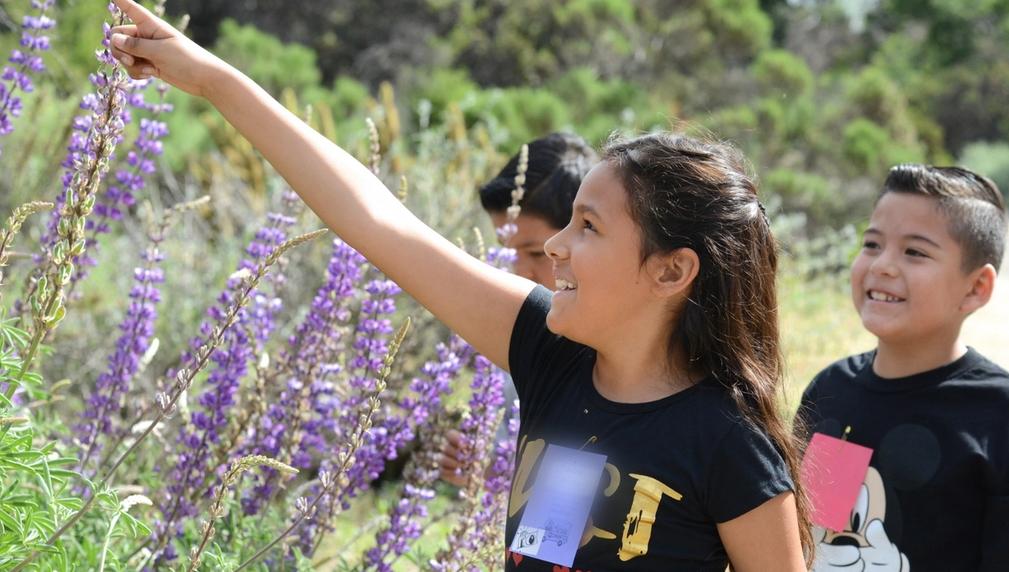Native Partners: Indigenous Centered Plant Education
Drawing on our robust history of educational programming, California Botanic Garden will develop, pilot and launch a multifaceted community education program centering the enduring connections between indigenous people and California's native plants. This program will be developed in partnership with indigenous leaders and will highlight the role native habitats play in addressing pressing environmental issues such as climate change and drought.

What is the primary issue area that your application will impact?
K-12 STEAM education
In what stage of innovation is this project, program, or initiative?
Pilot or new project, program, or initiative (testing or implementing a new idea)
What is your understanding of the issue that you are seeking to address?
With climate change and development threatening California's unique biodiversity, it's more urgent than ever to increase access, knowledge, and connection to our state's ecosystems. California Botanic Garden is dedicated to advancing knowledge and conservation of California native plants, starting with our youngest community members and continuing through college and graduate level research. The Garden has operated a successful school tour program for decades, and we are ready to reimagine our educational offerings for families, school groups, and independent learners. A new version of CalBG’s Native Partners curriculum will bring our world-class living collection into dialogue with local Indigenous partners to provide vital cultural and social context for young learners. The curriculum will fill in gaps in formal STEAM education and access to native landscapes, providing students with knowledge and tools that will allow them to connect with native ecosystems across the region.
Describe the project, program, or initiative this grant will support to address the issue.
The proposed program reimagines and expands a long-standing CalBG ethnobotanical educational program, Native Partners. This pilot will center the deep cultural connections between California’s Indigenous communities and native plants and provide accessible interpretation for family and school groups. Developed in partnership with local Tongva elders and scholars, the new curriculum will focus on the enduring relationship between indigenous people and native plants. In addition to updated curricula, the redesigned program will include a self-guided STEAM program that facilitates immersive learning. Visiting groups will pick up an activity pack with tools, worksheets, and a choose-your-own-adventure guidebook. During their visits, groups will explore the connections between California native plants and Indigenous Californians through activities designed to encourage engagement with the content and scenery around them.
By shifting the emphasis of the program from historical perspectives on Indigenous populations to modern practices and relationships, the new Native Partners suite of educational offerings will center the voices of local Tongva communities. Updated content and materials will give students and families the tools and knowledge to carry a new respect for diverse native plants, cultures, and ecosystems beyond the Garden and into their communities.
Describe how Los Angeles County will be different if your work is successful.
Native landscapes play a critical role in addressing complex environmental issues, such as climate change, biodiversity loss, and drought. By expanding the Garden’s capacity to reach young people across the county, the Native Partners curriculum will help inspire appreciation of California plants in larger and more diverse populations. Funding for program development will allow us to tailor educational materials to reach larger school groups, homeschooled students, and self-guided learners.
Los Angeles’ urban built environment limits access to the diverse native ecosystems of our county. CalBG looks forward to providing space for urban and underserved students and families to engage with native plants and experience Tongva perspectives on nature, culture, and the land. By building bridges between populations of Angelenos across the county, the Garden hopes to foster unique perspectives in students who will go on to shape the future of California’s natural habitats.
What evidence do you have that this project, program, or initiative is or will be successful, and how will you define and measure success?
While CalBG tracks program participation, we are working towards robust collection of qualitative data and demographic information about program participants. Reimagining the Native Partners program provides an opportunity to pilot a comprehensive evaluation plan. Indicators of success include:
Further understanding of the enduring connections between indigenous people and native landscapes Further understanding of the role native landscapes play addressing issues such as climate change, biodiversity loss and drought
Further knowledge of/ability to identity specific California native plant species
Number served by geographic region, race/ethnicity and age group
During the pilot phase, CalBG will streamline demographic data collection in order to reveal trends in participation and inform outreach activities. Evaluation will include a multiple choice survey and interviews with students and educators. The self guided program will include an optional evaluation via a QR code.
Approximately how many people will be impacted by this project, program, or initiative?
Direct Impact: 250.0
Indirect Impact: 800.0